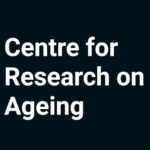PhD Research Project-Investigating lysosomal (dys)function in ageing and neurodegeneration
Apply for this job
To apply for this job please visit www.reading.ac.uk.
Project Overview:
Ageing is associated with a decline in the functions of an organism (López-Otín, C. et al. Cell, 2023) and correlates with an increased risk of developing diseases in the later life (Niccoli, T. & Partridge, L. Current Biology, 2022). In particular, ageing is a major risk factor in the onset of neurodegenerative diseases, such as Alzheimer’s disease and Parkinson’s disease. These diseases are characterised by the loss of neurons in specific areas of the brain and the accumulation of toxic protein aggregates in the surviving cells. Recent genetic and cellular studies suggest that improving the functionality of the cellular “waste disposal” system, the lysosome, might have beneficial effects on these processes. It has also been demonstrated that lysosome content and functionality worsen with age (Nixon, R. A. Biochimica et Biophysica Acta, 2020). However, a lot needs to be uncovered about how these processes work, how they decline with age, and how this ultimately leads to neurodegeneration.
This project will utilise in vitro and in vivo models of lysosomal dysfunction and protein aggregation to study the common molecular mechanisms underlying ageing and neurodegeneration. In addition to contributing to the characterisation of novel aspects of lysosomal biology, it will suggest potential interventions to improve human health and the society we live in.
The student will learn and use multiple techniques including genetic, cell biology, molecular, imaging and behavioural assays and the related analysis methods, working within a lively and friendly scientific network at the University of Reading.
Cogo group: The Cogo group is a newly established research group within the vibrant scientific community at the University of Reading, utilising C. elegans and cellular models to investigate aging and neurodegeneration. The lab is part of a lively network of national and international collaborators.
Eligibility:
Applicants should have a good degree (minimum of a UK Upper Second (2:1) undergraduate degree or equivalent) in Biology or a strongly-related discipline. Applicants will also need to meet the University’s English Language requirements. We offer pre-sessional courses that can help with meeting these requirements. With a commitment to improving diversity in science and engineering, we encourage applications from underrepresented groups.
Funding Notes
We welcome applications from self-funded students worldwide for this project.
If you are applying to an international funding scheme, we encourage you to get in contact as we may be able to support you in your application.





Share
Facebook
X
LinkedIn
Telegram
Tumblr
Whatsapp
VK
Mail